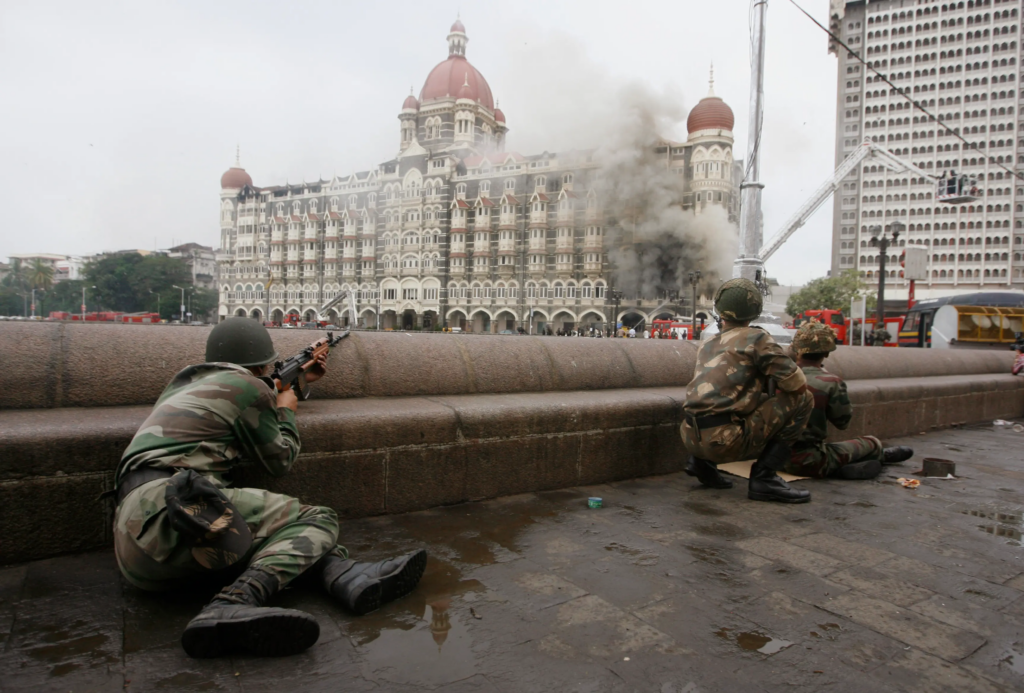Introduction
Tucked away in one of South Mumbai’s busy neighborhoods, a market bustles with life—Prices being shouted by vendors, Shopkeepers Configuring displays, and customers weaving through narrow lanes. Few who pass through this commercial hub Consider they are walking over the ashes of a chilling past. This Once-housed location an office quietly operated by David Coleman Headley, the man who played a pivotal role in the 26/11 Mumbai terror attacks.
Now, years after, the city is doing what it does best—healing, rebuilding, and rewriting the story. This is the story of how a Market, after being kissed by terror, is opting to forget, or at least move on.

The Hidden Office Behind A Somber Storyline
In the early 2000s, David Headley became an American businessman and started an immigration services business in Mumbai. This legitimate-appearing office was In Fact, a front for much more evildoing. It served like a hub for him to scope out and map the possible targets for the Lashkar-e-Taiba, the group responsible for the 26/11 attacks.
He went to key locations like the Taj Mahal Palace Hotel, CST station, and Leopold Café, taking down layouts and Security measures. What He took notes on the evidence that to be necessary in assisting the attackers carry out one of the most gruesome attacks in Indian history.
When his role was exposed after his arrest in the United States, the address of his Mumbai office suddenly became a symbol of treachery. It was a reminder that terror had insidiously taken hold in the very fabric of daily existence.
From Infamy to Normalcy
Over a decade after, Headley’s former building is another commercial building. There are no markers, no plaques, no a sign of what it used to be. The market around it has changed. It is filled with e-stores, cafes, mini-offices, and hawkers selling everything from street food to mobile phones.
Locals, especially the newer generation of traders, do not know anything about the history of the site. Even those who do Remember shy away from Talking about it To many, it is not about forgetting the past, but about not letting themselves be taken hostage by it.
“Do not forget 26/11, but we do not want to live in its shadow,” states a long-time resident. “This city has experienced too much. We move forward because we have no other option.”

The Delicate Balance Between Memory and Healing
The market’s quiet metamorphosis raises a larger question—should such places be publicly remembered, or left to fall back into invisibility?
There are those who feel that the site being marked would be a poignant reminder of complacency and the unseen faces of terror. There are those that feel constant reminders extend the trauma and allow communities to never heal.
Urban sociologist Rina Mehta provides insight: “Cities are living organisms. They don’t just carry wounds—they regenerate. Sometimes the healing happens by remembering. Other times, by quietly moving on.”
A City that Rebuilds, Always
Mumbai’s resilience is legendary. From the 1993 serial blasts to the 2006 train bombings and the 26/11 siege, the city has suffered unspeakable pain. Yet, time and again, it rises.
This market, which was one time linked to with one of India’s darkest moments, now represents something different All at one time : the unbreakable spirit of Mumbai. Its citizens will not allow their identity to be defined by fear. Rather, they concentrate on work, community, and day-to-day survival—the essence of life in this megacity.

Conclusion: Moving Forward, Not Forgetting
The office where David Headley used to work no longer has his shadow. It resonates now with laughter, haggling, and the noise of a city reinventing itself anew. Although the memory of 26/11 lingers in the consciousness of the city, those places, this bazaar illustrates that looking ahead does not mean forgetting—mean staying aloof from defining tragedy.
Mumbai does not have to forget its past to recover from it. But by deciding to occupy its haunted nooks with life, business, and hope, it takes back control of its story. And in that, maybe, is the greatest honor to those that it lost.
